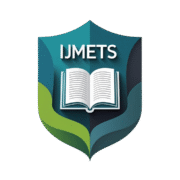📚 Publication Ethics and Malpractice Statement
International Journal of Modern Developments in Engineering Technology and Sciences (IJMETS)
Effective Date: 25 June 2025
IJMETS is committed to maintaining the highest standards of publication ethics and takes all necessary actions against publication malpractice. This statement is based on the COPE (Committee on Publication Ethics) Code of Conduct and Best Practice Guidelines, which can be accessed at https://publicationethics.org.
🔎 Overview
Publication ethics are essential to enhance the quality and credibility of academic research. These standards apply to all parties involved in the publishing process: editors, reviewers, authors, and the publisher. IJMETS operates independently of content interference and ensures timely support for fair and ethical publication.
🖋 Editorial Responsibilities
- Editors must base decisions to accept or reject a manuscript on its originality, clarity, significance, and relevance to the journal.
- Editors ensure an appropriate peer-review process, selecting qualified reviewers without conflicts of interest.
- Manuscripts are treated as confidential and must not be disclosed without permission.
- Editorial decisions are guided by academic merit and journal policies, avoiding bias, plagiarism, or legal infringement.
- Editors must avoid conflicts of interest and recuse themselves when necessary.
- Reviewer identities remain confidential unless otherwise agreed.
- Editors must investigate ethical complaints and act upon potential misconduct.
👩⚖️ Responsibilities of Reviewers
- Reviewers assist editors in editorial decisions and help authors improve their manuscripts.
- Reviews must be conducted objectively, constructively, and within a reasonable timeframe.
- Confidentiality of manuscripts must be maintained throughout the process.
- Reviewers must disclose any conflicts of interest and decline review if unqualified.
- Unpublished data or ideas must not be used for personal benefit.
- Reviewers should identify missing citations or duplicated content and alert editors to any form of suspected plagiarism or overlap with other work.
✍️ Author Responsibilities
- Authors must ensure the research is original, ethically conducted, and complies with relevant laws and standards.
- Results must be presented honestly and accurately, without fabrication or manipulation.
- All listed authors must have contributed significantly and approve the final manuscript.
- Authors must not plagiarize or self-plagiarize and must cite all relevant work.
- Authors must disclose any conflicts of interest or funding sources.
- Submitting the same manuscript to multiple journals simultaneously is unethical and prohibited.
- Upon discovering significant errors post-publication, authors must promptly inform the journal and cooperate in correction or retraction.
- Raw data should be retained and made available when requested for validation purposes.
- Authorship should reflect actual contributions. Gift or honorary authorship is not permitted.
⚠️ Dealing with Potential Misconduct
If misconduct is suspected, editors are ethically obligated to investigate. This applies to both published and unpublished manuscripts. Editors will:
- Seek a response from the accused parties.
- Escalate the issue to the relevant institution or governing body if necessary.
- Take appropriate actions, including retraction, if misconduct is confirmed.
📑 Plagiarism Policy
IJMETS uses software tools and editorial review to screen for plagiarism. However, the primary responsibility for originality lies with the authors. Plagiarism includes:
- Copying others’ work without citation.
- Submitting previously published content as new.
- Rewording or disguising existing material without acknowledgment.
Authors must always cite their sources and place their work in the proper academic context.
🧪 Ethical Oversight
If research involves:
- Human or animal subjects, authors must disclose this and submit appropriate ethical approvals.
- Hazardous chemicals or equipment, a safety statement must be included.
- Confidential data or proprietary information, authors must justify and secure the content appropriately.
❌ Disclaimer
The Editorial Board of IJMETS strives to ensure the accuracy of all published content. However:
- The journal makes no guarantees about the accuracy or completeness of the content.
- Opinions expressed in articles are solely those of the authors and do not necessarily reflect the views of IJMETS editors or reviewers.
- IJMETS disclaims all liability for the use or misuse of any information published.
📩 Contact Us
For inquiries regarding publication ethics, misconduct, or corrections, please contact:
Email: editor@ijmets.com
Website: www.ijmets.com
